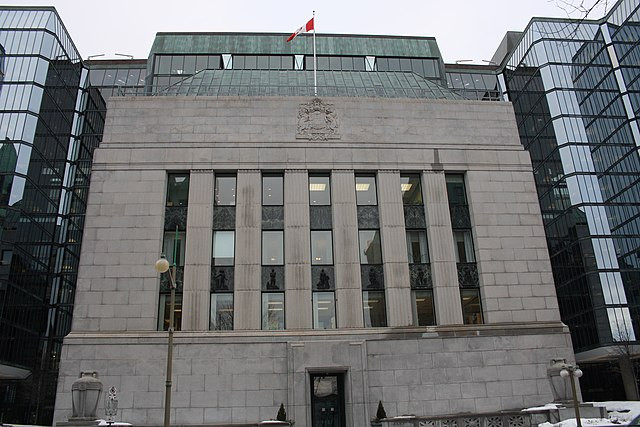The Bank of Canada (BoC) has taken a significant step in monetary policy by cutting its key policy rate for the first time in four years. On Wednesday, the central bank reduced its benchmark interest rate by 25 basis points, bringing it down to 4.75%. This move, widely anticipated by financial markets, reflects the BoC's response to easing inflationary pressures and marks a turning point in its efforts to stabilize the Canadian economy.
The decision to cut the rate comes after a prolonged period of maintaining it at a more than two-decade high of 5%. Governor Tiff Macklem highlighted the positive indicators for underlying inflation, stating, "With further and more sustained evidence underlying inflation is easing, monetary policy no longer needs to be as restrictive."
Following the announcement, financial markets quickly adjusted, with a 42% probability of another rate cut to 4.50% in the next month being priced in. A full rate cut in September is now anticipated. The Canadian dollar responded to the news by weakening slightly, dropping by 0.18% to 1.3702 against the U.S. dollar, or 72.98 U.S. cents.
Canada joins other central banks, such as Sweden's Riksbank and the Swiss National Bank, in reducing rates amidst declining price pressures. The European Central Bank is also expected to follow suit soon. Inflation in Canada has decreased to a three-year low of 2.7% in April, remaining below 3% for four consecutive months, although it is still above the BoC's 2% target.
Macklem signaled potential future rate cuts if inflation continues to decline. "If inflation continues to ease, and our confidence that inflation is headed sustainably to the 2% target continues to increase, it is reasonable to expect further cuts to our policy interest rate," he said. However, he emphasized a cautious approach, noting, "We are taking our interest rate decisions one meeting at a time."
The BoC's next rate announcement is scheduled for July 24, coinciding with the release of its latest quarterly forecasts. Economic growth in the first quarter was slower than anticipated, at 1.7%, contributing to market expectations for a rate cut.
Macklem acknowledged that the economy is currently operating with excess supply, leaving room for growth even as inflation rates drop. He reiterated the central bank's focus on the mismatch between demand and supply, inflation expectations, wage growth, and corporate pricing behavior.
Canada's move to cut rates makes it the first G7 nation to reduce interest rates amidst global efforts to control inflation. The Swiss National Bank initiated this trend with a surprise rate reduction in March.
The rate cut will directly impact homeowners with variable-rate mortgages and other debt tied to the central bank's policy rate, offering immediate relief through a 25-basis-point reduction in interest rates.
The BoC stated that recent economic data has bolstered confidence among monetary policymakers that inflation will continue its downward trajectory towards the central bank's 2% target. However, it cautioned that "risks to the inflation outlook remain."
Governor Macklem and senior deputy governor Carolyn Rogers are scheduled to hold a press conference to discuss the rate cut and its implications for the Canadian economy.




